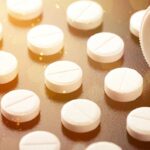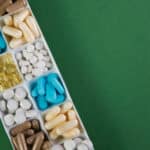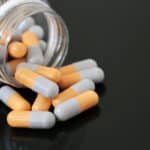Can You Overdose On Ritalin? | Symptoms & Treatment
Ritalin is a prescription stimulant used to treat attention-deficit hyperactivity disorder (ADHD) and narcolepsy. Ritalin and other stimulants are commonly abused for their effects of increased energy, focus, and alertness.
Taking high doses of Ritalin or combining it with other prescription drugs can cause a life-threatening reaction. A Ritalin overdose can cause serious cardiovascular problems, including heart attack, heart failure, seizures, and sudden death.
If you recognize signs of overdose in a loved one, seek medical attention immediately.
Effects Of Ritalin
Ritalin is the brand name for methylphenidate, a stimulant used to improve restlessness and impulsivity.
Methylphenidate is also found in the brand name prescription drugs Concerta and Metadate. Ritalin works similarly to amphetamines, like Adderall (amphetamine/dextroamphetamine) and Dexedrine (dextroamphetamine).
Ritalin and other stimulant drugs increase levels of the neurotransmitters dopamine and norepinephrine in the central nervous system. High levels of norepinephrine can increase heart rate, blood pressure, and blood sugar.
In addition, you may experience various side effects when you take stimulants. The severity of side effects is dependent on the type of stimulant and how much you use.
Common side effects of Ritalin and other stimulant medications may include:
- dry mouth
- low appetite
- weight loss
- anxiety
- irritability
- increased heart rate
- muscle twitching
Ritalin Overdose
A Ritalin overdose is much less likely to occur if you take the medication as recommended by your prescribing doctor. Abuse of Ritalin, by taking higher doses or mixing it with other prescription drugs, increases the risk of overdose.
Ritalin LA (long-acting) and Ritalin SR (sustained-release) are extended-release versions of the drug that are released in your body slowly, over the course of several hours.
Crushing, snorting, or injecting extended-release pills causes higher doses to be released into your bloodstream immediately, which can cause life-threatening complications.
Stimulant Overdose Symptoms
Stimulant toxicity can cause a dangerous increase in blood pressure, heart rate, and body temperature. Heart problems caused by high doses of stimulants can cause seizures and heart failure, which can be fatal.
In addition, some people experience psychological symptoms that can affect judgment and behavior.
Ritalin overdose symptoms include:
- confusion
- hallucination
- psychosis
- aggression
- irregular heart rate
- high blood pressure
- chest pain
- seizures
If you recognize signs of a drug overdose, seek medical help immediately. Healthcare professionals can try to treat an overdose using medications to improve blood flow to the heart and prevent seizures.
Ritalin Overdose Treatment
Seeking emergency help is priority during a stimulant overdose to prevent fatal complications. Although stimulant overdose death rates are not common, the risk is higher when stimulants are mixed with other drugs.
Medical professionals will first treat life-threatening symptoms, including high body temperature, seizures, and heart arrhythmias.
Sedatives, including benzodiazepines, may be used to improve severe symptoms and to reduce agitation. If necessary, activated charcoal may be used to help reduce the absorption of the drug in the stomach.
Successful overdose treatment may depend on:
- how much Ritalin was taken
- medications mixed with Ritalin
- bodily systems affected by the overdose
- health conditions
Following overdose treatment, your healthcare provider may suggest drug addiction treatment. Addiction treatment can help lower the risk of further drug overdoses and other long-term health problems.
Ritalin Addiction
Ritalin is a schedule II controlled substance in the United States, which means it has a high potential for dependence and addiction. Long-term Ritalin abuse can cause physical dependence, which means the brain relies on the stimulants to function.
If you stop stimulant use, it is likely you will experience mild to severe withdrawal symptoms. Stimulant withdrawal can be treated in a medical detox program, which offers 24/7 supervision and support.
Some people who are physically dependent develop a stimulant addiction, also known as a substance use disorder (SUD). Ritalin addiction is characterized by compulsive drug use, despite harmful consequences.
Although Ritalin addiction can be difficult to stop on your own, professional treatment can help.
Ritalin Addiction Treatment
Professional treatment, including inpatient and outpatient rehab services, can help you learn to live drug-free. Most drug addiction treatment programs offer individualized treatment and a wide range of treatment options for every level of care.
Depending on your individual needs, treatment options may include:
- inpatient rehab
- outpatient services
- behavioral therapy
- counseling
- support groups
At Northeast Addictions Treatment Center, we offer a variety of comprehensive services in our outpatient programs. If you or a loved one would like to learn more about how we treat substance abuse issues, please call our helpline today.
Sources
Written by
Northeast Addition Editorial Team
©2024 Northeast Addition Center | All Rights Reserved
This page does not provide medical advice.





